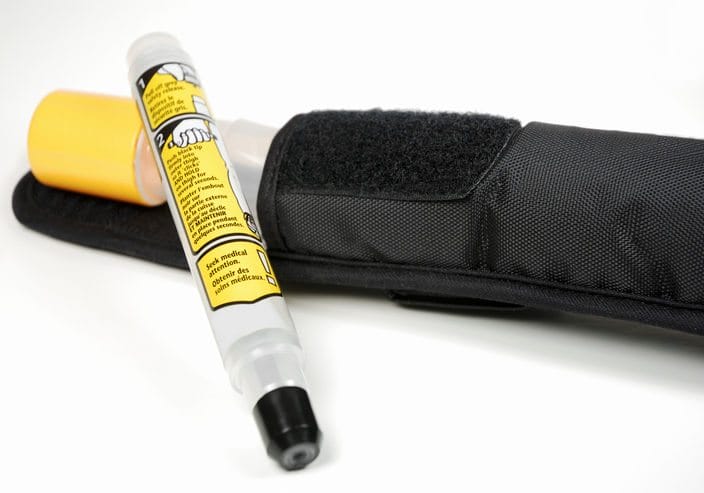For families dealing with food allergies, stress can be an unforeseen side effect. It’s an issue that affects both the parents and the allergic child – and one that grows more profound in the teenage years.
“Having a life-threatening allergy has been compared to an obstacle course for real because there are so many hurdles, so many challenges and surprises, and everybody’s experience may be different,” notes Jan Hanson, the author of Food Allergies: A Recipe for Success at School.
Research indicates that families managing food allergies have a significantly lower quality of life due to concerns for their child’s safety. As children become teens and begin to care for themselves, Hanson says these stresses often become “more profound.”
When children are young, she notes that parents organize safe outings, stay vigilant for triggers, and develop anaphylaxis action plans to keep their children safe.
Teen Anxiety vs. Advocacy
But that role changes: “The responsibilities come for that middle school and high school student when they’re transitioning from dependent to independent,” says Hanson. “Now the parent’s role is really to help that teen have the confidence to practice what they’ve been watching, what they’ve been learning, so that the teen now becomes their own best advocate.”
However, the teenage years are notorious for risk-taking behavior, as teens worry about fitting in at school with their allergies while parents worry about how their children are handling their new health responsibility.
In order to safely manage allergies as kids become teens – and also ease the burden of anxiety for both parents and students – Hanson stresses the importance of education.
Key points she recommends to help your teen keep safely self-sufficient:
– Offer support and guidance when necessary.
– Set ground rules that ensure that your teen always carries his or her epinephrine auto-injectors.
– Remind of the importance of reading labels closely to avoid triggers.
– And reinforce the importance of asking questions at restaurants to ensure menu items are free of allergens, and also cross-contact with other food.
“What the parent is doing is helping their teen to recognize potentially difficult, dangerous situations and how to make good choices,” she says.
Son ‘Owned’ Gym Class Reaction
Hanson, a longtime food allergy consultant, has worked to navigate such situations in her personal life as well as in her profession. While the cafeteria is the typical risk zone for teens with food allergies, it was gym class that spelled allergy trouble for Hanson’s son.
One day, the teen, who had been living with serious allergies to peanuts and tree nuts since he was a baby, began having a reaction from skin contact exposure. His skin was reddening with hives and his lip was beginning to swell.
Since Hanson had worked with her son on recognizing the signs and symptoms of a reaction, he knew right away that he needed medical attention. He immediately went to the school nurse, where his mother was called, and the reaction was treated before it progressed.
It was a scary event for Hanson and her son, but she says the experience speaks to the importance of education. “It was a moment for him to own it himself, how to self-manage, and really, that’s the goal,” says Hanson. “And that really is how he copes and how I cope.”
Jan Hanson is founder of Educating for Food Allergies, LLC.
Related Reading:
Risk-Taking and Food-Allergic Teens: What I’ve Learned
Allergic Teens and The Overnight School Trip






